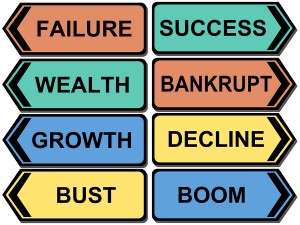In their overview blog post from Techonomy 2012, Sarah Evelyn Harvey and Adrienne Burke describe it as “a conference about how the exponential pace of technology process makes possible a new world. We are gathering a diverse group of expert voices for a multidisciplinary dialogue about creating a better future. Today is the second day of the three-day event, and topics include the geo-engineering, China and Africa as new frontiers, U.S. competitiveness, and robots!” Since I couldn’t be there, I have been tracking it online.
 One fascinating panel discussion was about “Who’s Vulnerable Among the Internet’s ‘Fantastic Four’? Techonomy Panelists Say It’s Apple And Facebook.” Anthony Ha did a short but cogent summation of the event, and the “vulnerabilities” of Apple and Facebook was something to think about. What was said? According to what I read on the blog: Apple could be taken down by losing its technological or its trendiness edge. Then, too, it could find itself with too many bricks on its back, meaning that all their storefronts could prove to be deadweight in a world moving more and more to e-sales.
One fascinating panel discussion was about “Who’s Vulnerable Among the Internet’s ‘Fantastic Four’? Techonomy Panelists Say It’s Apple And Facebook.” Anthony Ha did a short but cogent summation of the event, and the “vulnerabilities” of Apple and Facebook was something to think about. What was said? According to what I read on the blog: Apple could be taken down by losing its technological or its trendiness edge. Then, too, it could find itself with too many bricks on its back, meaning that all their storefronts could prove to be deadweight in a world moving more and more to e-sales.
On Facebook, one key concern is how little is known of the thinking of its founder, Mark Zuckerberg, because of his relative obscurity for such a prominent player in the techno space. Beyond that, the company was pinged for having too high a cost structure and for being slow out of the gate in monetizing mobile transactions. There were also comments that the “big four” could be assaulted by a new company, perhaps one using “a new technology that isn’t yet economic”.
How does one think about such musings? From my research, four points are worth noting:
- Finding your next is a challenge even for the biggest and most successful companies — and perhaps more so as the challenge of continued growth on a large base is daunting.
- Today’s advantages (such as Apple’s retail stores) can become tomorrow’s liabilities and “sensing” when to shift organizational priorities is critical. A subtle dimension of finding your next is the ability to know when to redirect investment from waning assets classes (like retail).
- Foresensing is about identifying possible productive opportunities for the future and not about identifying sure things. The mantra “fail often, fail fast, and fail cheaply” holds true when it comes to nextsensing.
- Your upending may not come from a big and known competitor. Thus, constantly observing — especially on the periphery — can help you get an “early sense of things” before others. It is not a question of whether a new competitor will emerge but, rather, when and from where. The bigger you are, the farther you have to fall. As one of the comments posted on the blog (by Michael Long) notes, “Apple? Maybe, but are we forgetting just how quickly the world switched from Alta Vista’s search engine to Google? One day AV was — quite literally — at the top of the heap. Google knocked them off in less than a year. All you need is a major disruption in search, one that gives quantitatively better results, and a new search engine is just a click away. And with it go Google’s ad revenues. Boom.”
